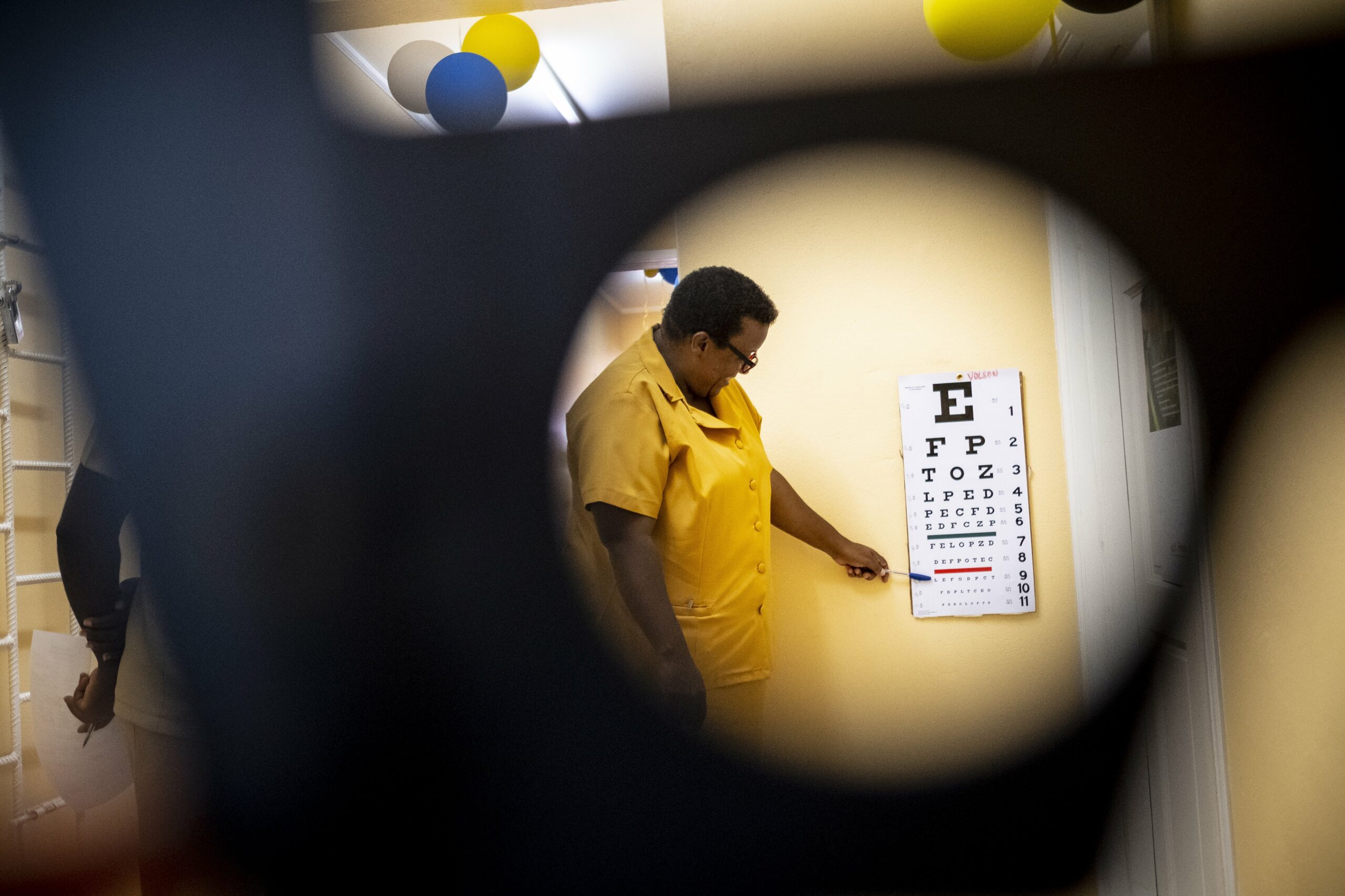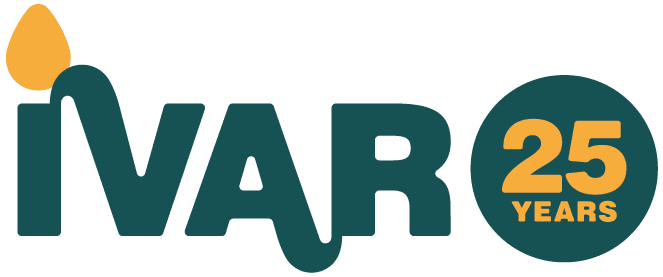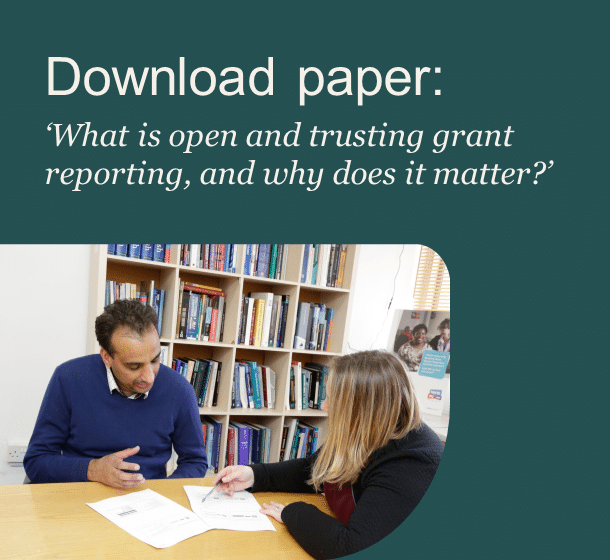
Open and trusting reporting
Let’s make grant reporting more proportionate, simple and useful.
Funders and charities alike have long expressed frustration with the way grant reporting works.
Charities often struggle to manage onerous, disproportionate requirements; and funders feel frustrated by overly positive accounts, which do little to help them understand how best to improve their own contribution.
But it doesn’t have to be this way.
The last two years have generated practical innovations across a range of funding practices – not least around reporting. We are working with funders and charities to explore what an agile and light-touch approach looks like, and why it matters.
Why review your grant reporting?
Avoid wasted effort
Reporting arrangements can be burdensome rather than useful. Our goal is to address and reverse that, by supporting funders and [tip description=”We use charities as shorthand for all kinds of social sector organisations, from unincorporated community groups to social enterprises.”]charities[/tip] to co-design a new approach that works for them both.
Focus on what really matters
We want to translate intentions of being light-touch into action for the longer term – so that funded organisations can focus even more on what really matters to the people and communities they serve.
Recognise funders’ power
The power to make change happen – to do things differently – largely rests with funders. The design of reporting arrangements – format, frequency, content – is in their gift.
How does this link to Open and Trusting Grant-making?
The ideas shared on this page link to the eighth commitment to Open and Trusting Grant-making:
Open and Trusting Grant-making is a community of over 100 funders who are committed to making and managing grants in a way that reflects their confidence in the organisations they fund.
Find out more and join the community by visiting:
What is the purpose of reporting?
Grant reports generally serve one or more of three main purposes. For many funders, an essential first step towards lighter-touch reporting has been taking apart and scrutinising each element in terms of its value.
What charities think – the best and worst of grant reporting
We invited charities to share their views on the best and worst of grant reporting; and five key messages emerged about what funders can do to help make it a more mutually beneficial experience.
Let’s reframe reporting as a joyous experience – we all care about the same things. Let’s celebrate what’s working and explore what we could be adapting.
Testing six principles for grant reporting
In 2018, IVAR and Esmée Fairbairn Foundation brought funders and funded organisations together to tackle ‘the problem of grant reporting’, and to do it in a way that respected the challenges and concerns of both. A group of 16 charities and funders committed to work together to find practical ways of making grant reporting more proportionate, simple and useful. By early 2020, we had tested six principles to support better reporting and were poised to call for widespread change.
Covid-19 stopped this project in its tracks. But the last two years have generated practical innovations across a range of funding practices – not least around reporting. Many more trusts and foundations found they could be lighter, more agile and more open in their thinking and ways of working.
In reflecting on the actions that funders are taking to become more open and trusting in their approach to grant reporting, we see six principles emerging that are helping funders of all types to improve their practice. We see these as an evolution from those published in December 2019, and our next step is to test and improve them with funders and charities.
Getting started
1. Be rigorous: Take the time to agree what you need, why you need it and how you will use it
2. Be realistic: Reporting alone cannot answer strategic questions about ‘what next’
Moving to design
3. Be respectful: Do everything possible to lighten the burden
4. Make it useful to charities, not just to foundations
5. Allow greater choice in how and when reports are made
Communication
6, Be explicit: Minimise the risk of confusion or second guessing by listening and responding to the needs and preferences of your grantees
Get involved
Share examples
If you have examples of things you are doing, or materials/templates that bring Open and Trusting reporting to life, please do share them with natalie@ivar.org.uk
Participate in our research
If you are doing something about reporting or have experience of reporting relationships that you would like to share as part of this study, please get in touch with vita@ivar.org.uk
Join Open and Trusting
Please join us in this collaborative effort to create more equitable and effective funding relationships that will help us all make our best contribution to the communities and causes we serve.
With thanks to:


